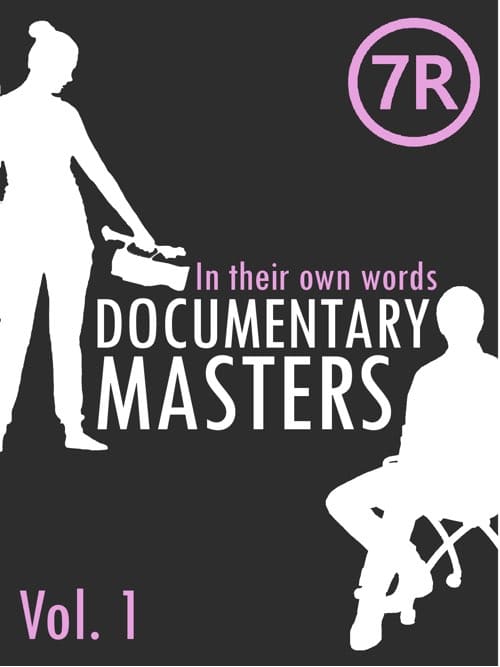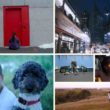Besieged in Aleppo, Waad Al-Kateab kept filming. From her incredible archive, she assembled with British director Edward Watts the breathtaking and harrowing documentary For Sama.
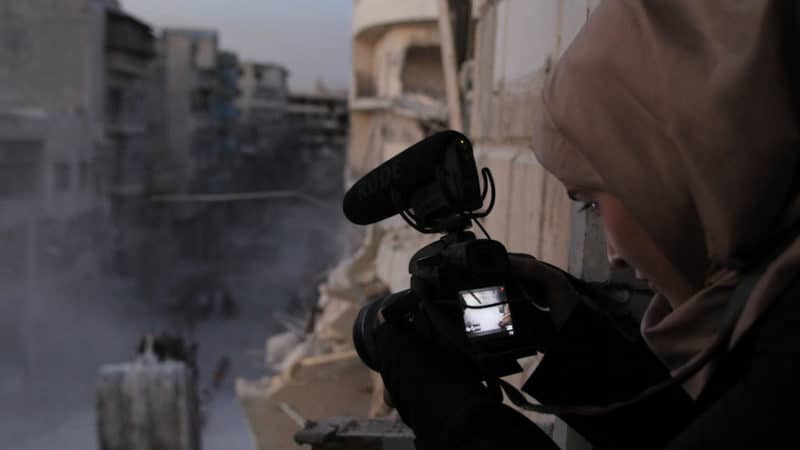
Winner of the Golden Eye award for best documentary at the Cannes Film Festival, For Sama may sound like any other on-the-ground documentary about Syria and Aleppo. But unlike other docs that seek to explain this conflict in rather abstract, geo-political terms, this breathtaking documentary adopts a resolutely narrower perspective: that of director Waad Al-Kateab herself.
Journalist, reporter, and documentary filmmaker Al-Kateab started filming the Syrian unrest from its very beginning as a peaceful student protest, and continued to shoot as the city grew more and more unsafe. In that time, life didn’t stop: she met her husband, started a family, and had her daughter, Sama. Made in collaboration with British director Edward Watts, For Sama not only relates the conflict — it also chronicles Al-Kateab’s life throughout those years, as well as those of her friends and family, and all the people she met, helped, or saw die.
The images, recorded at Al-Kateab’s own peril, give us incredible access into a conflict often seen from a distancing, outside perspective. The voice-over, written and narrated by Al-Kateab, is another incredibly valuable and rare window into the reality of war: in the form of a letter to her daughter Sama, Al-Kateab relates the painful and complicated emotions she felt at the time of the siege and which have never left her.
I interviewed Al-Kateab and Watts about combining their respective perspectives on Syria to create a gripping documentary whose images, sounds, and words leave an indelible mark.
Seventh Row (7R): How did you two come together to make this film?
Edward Watts: Everything starts with Waad.
Waad Al-Kateab: I was filming in Aleppo in 2011 when the revolution started, and in 2016, I was working with Channel 4 News in the UK. I was filming in Aleppo and sending them the footage, which they would broadcast on their program. We assembled those reports on our website, Inside Aleppo. Then, when I left Aleppo, after the displacement, I met my Channel 4 contacts in person, and they introduced me to Ed. One of my colleagues at Channel 4 News, Siobhan Sinnerton, was asking me if I had any extra footage that we didn’t use on the news, and I said I did. When Ed and I met with our executive producer Nevine Mabro, and with Siobhan Sinnerton, we discussed making a bigger film with that footage.
Edward Watts: I had been talking about Syria ever since the revolution began, wanting to tell stories and stories similar to Waad’s in particular. Stories about the regular people who were rising up and fighting for their freedom. As Waad says, when people found out that she had this incredible personal archive, they thought of me because they knew I was so passionate about Syria, and that was it. We’ve been working together for two years to finish it.
7R: Waad has, of course, been to Syria, but Ed, you haven’t. How did that influence your work together when you were making the film?
Waad Al-Kateab: Ed knows a lot about the Western audience, a lot about Syria in the way people see it from outside. But I have the insider vision of what happened there. We needed a long time to understand where our visions would meet: that of a local, and that of an outsider. He was speaking about how the audience around the world could see things, but he couldn’t really know what we were thinking as people who were there. In the end, my friends who were in Aleppo told me, “This is our story,” and the audience we met after the film’s premiere told us they were very moved and understood exactly what was happening. So I think we might have found the right midpoint between those two audiences.
Edward Watts: It was a wonderful collaboration. The process wasn’t straightforward. We had to learn about each other; there was a lot of push and pull. We had to really try to understand each other’s point of view, to find the best process. As Waad said, I think the fact that all audiences seem to be engaging with the film so strongly is a result of this process. And we had very strong creative differences. We had disagreements. We would spend a long time arguing over tiny details. But it’s that energy and that very respectful but also very honest collaboration that hopefully make the film what it is.
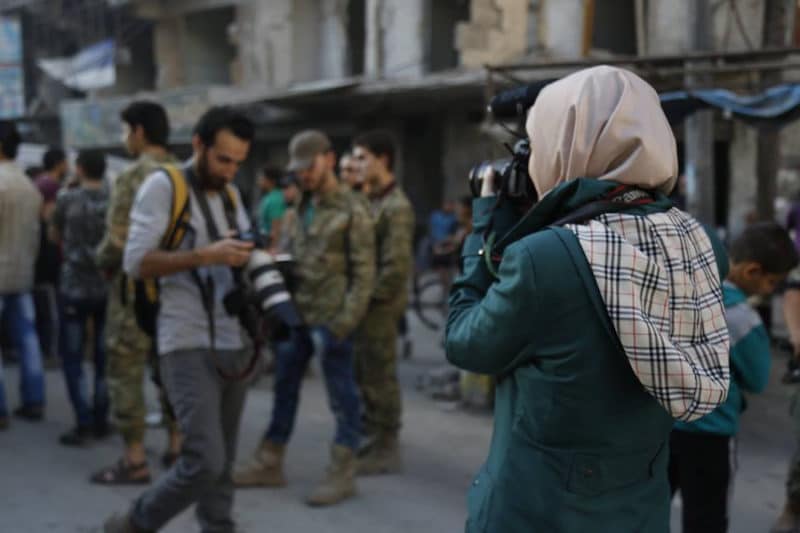
7R: When you were shooting all this footage over all these years, was it as a sort of diary, a historical document, or maybe something to leave to your daughter? What did you think at the time of filming? What did you think this footage would become?
Waad Al-Kateab: From the beginning, I had no plan of making a feature-length documentary. I started filming everything from the beginning, and I was shooting some TV news reports and some shorts — sometimes collaborating with other colleagues. But the main thing was that I felt that, at any moment, I could be killed. So I thought that all these unique moments in our lives — happiness, sadness, suffering, joy — should all be recorded.
[click_to_tweet tweet=”‘I felt that, at any moment, I could be killed. So I thought that all these unique moments in our lives — happiness, sadness, suffering, joy — should all be recorded.’ –Waad Al-Kateab” quote=”‘I felt that, at any moment, I could be killed. So I thought that all these unique moments in our lives — happiness, sadness, suffering, joy — should all be recorded.’ –Waad Al-Kateab”]At that time, it was more about leaving this footage to the world rather than to my daughter, because I wasn’t sure that she would survive with me. The main hope was that some day, if something were to happen to us, someone would do something with this record of our lives.
7R: Because you had so much footage, which I can imagine included many very powerful moments, how did you decide what you would include in the film and what would stay out?
Edward Watts: Waad had such an incredible archive. There were so many stories that you could tell — there was the story of Aleppo, the war, the life at the hospital… There are some extraordinary things that we just couldn’t fit in, because in the end, it was about finding that human truth. That was the core, beating heart of it. We gradually whittled it down by going through this mass of footage asking ourselves, “How is this feeding into the lifeblood and the soul of the film?”
7R: The film is really about the human cost of the war, the value of a human life. The film gives a powerful sense of how horrible it is that people are killed, anywhere and especially in Aleppo. How did you work to keep this perspective throughout the film?
Edward Watts: The extraordinary thing about what Waad achieved when she was filming was that humanity that you’re talking about. That extraordinary humanity was just pouring out of the footage. I can tell the compliments of her work so she doesn’t have to sing her own praises: as a camerawoman, she had an engagement with people — an incredible eye and sensitivity for human stories and for the human being in front of her, including her own family, of course, and for herself.
[click_to_tweet tweet=”‘As a camerawoman, Waad had an engagement with people — an incredible eye and sensitivity for human stories and for the human being in front of her.’ –Edward Watts” quote=”‘As a camerawoman, Waad had an engagement with people — an incredible eye and sensitivity for human stories and for the human being in front of her.’ –Edward Watts”]In a sense, that humanity was just shining, radiating out of the footage. I think that when we came to the understanding of the message of For Sama, and this core relationship between the mother and her daughter, that appeared somehow reflected in all the relationships that you see — other parents with their children, other people who are facing the same terrible decisions about whether to stay or whether to leave… That’s what really tied the whole thing together.
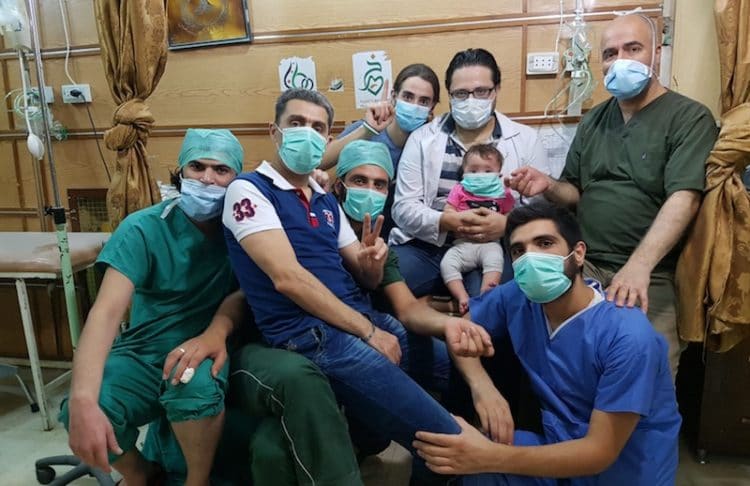
7R: When did you decide to have voice-over in the film? Was this something that you had thought about early on?
Waad Al-Kateab: We wanted to reach the people both outside and inside Aleppo, and for a lot of things, there was no need for voice-over on that. It was very clear from the footage. But there were also things that the footage alone couldn’t say.
Edward Watts: Our sense was that, as you watch the film, you feel like you are Waad. The camera looks down at her feet and her hands reach out. People look right down the barrel of the lens while they’re talking. The voice-over was another way of bringing that human dimension. You knew Waad; you knew what was going through her mind; you were inside her head, literally, looking out.
[click_to_tweet tweet=”‘As you watch the film, you feel like you are Waad. The camera looks down at her feet and her hands reach out. People look right down the barrel of the lens while they’re talking.’ –Edward Watts” quote=”‘As you watch the film, you feel like you are Waad. The camera looks down at her feet and her hands reach out. People look right down the barrel of the lens while they’re talking.’ –Edward Watts”]I think that’s another reason why the film has that power: in a sense, in 90 minutes, you feel like you’ve lived in Aleppo for five years. The voice-over is crucial to that, to help you understand these very difficult decisions and different emotional pulls that people were faced with everyday.
7R: The film’s tone is very striking, too. The voice-over is quite poetic and full of feeling but in a way that feels very sincere, with every word very precisely chosen. What was your process accessing and writing down these painful emotions?
Waad Al-Kateab: We’re still living this thing now, what we lived in Aleppo. It’s still in my mind; it’s still in my feelings.
Edward Watts: We were working on the voice-over right to the end, and that was another part of the collaboration. Even right up to a week before we finished, we were like, “Let’s go over the voiceover one more time.” After two years of working together and learning together, Waad went off on her own for two days and really wrote down some of those raw feelings. And then, we got back together to take those feelings and perfect them in the way you’re talking about, so that they work in the film.
That was the climax of our collaboration, in a way. Waad was able to access those feelings. Then, we were able to lace them into the film in the best way possible. I remember there were times when we were working on the voice-over — if you don’t mind me saying, Waad — where she was recording it at home and sending it to me in the edit. The emotion, you were still feeling it. Sometimes, you were crying when you were reading the voice-over line, even when it was just the guide voice-over line.
Waad Al-Kateab: It wasn’t just one event that happened to us; it was five years of living in a way where you don’t mind if you’re killed for this state, for this village that you have. It’s been two years, but I’m still there, you know.
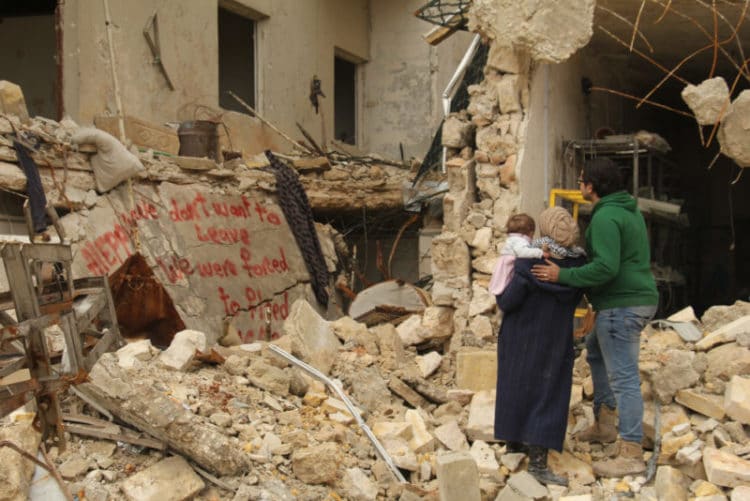
7R: How did you decide whether to show the violence that you witnessed, and what violence to show? We see footage of people dead or dying in front of your camera, for example.
Waad Al-Kateab: We had this discussion from the first day until the end. I do believe that people should see from this footage as much as they can bear. What I captured in the footage in Aleppo is maybe 10% of what was happening there, because I couldn’t catch everything that was happening. What is in the film is just a tiny bit of the footage I had. We were trying to have a balance where people could watch and know exactly how bad the situation was, all the while knowing that they couldn’t watch all of it.
[click_to_tweet tweet=”‘What I captured in the footage is maybe 10% of what was happening there. What is in the film is just a tiny bit of the footage I had.’ –Waad Al-Kateab” quote=”‘What I captured in the footage is maybe 10% of what was happening there. What is in the film is just a tiny bit of the footage I had.’ –Waad Al-Kateab”]Edward Watts: Exactly. We knew we had to include some of the horror, because people had to understand that was the truth. But there was so much that we left out that was much, much worse.
7R: What do you hope for this film to do?
Edward Watts: Number one, we think the film really, finally, represents the truth of what happened in Syria, beyond the lies, beyond the misinformation and the propaganda, and the way in which people have tried to manipulate that truth. It wasn’t terrorists. It wasn’t ISIS. It wasn’t the regime against ISIS. It was the regime against ordinary people who were just fighting for their dignity.
Waad Al-Kateab: Maybe the film could be a message for people to understand better the refugee camps that are appearing all over the world now, the Syrians living in many countries. I really want people to understand why these people came to their country, why they are now refugees. I want them to know that each one has a story and each one is suffering from being out of their country. Maybe the film could make a difference in the way we treat these people who are now out of their country.
[click_to_tweet tweet=”‘I think Waad’s story is an example for all of us of the courage, tenacity and strength that we need to have if we’re going to fight to correct the problems of this world.’ –Edward Watts” quote=”‘I think Waad’s story is an example for all of us of the courage, tenacity and strength that we need to have if we’re going to fight to correct the problems of this world.’ –Edward Watts”]Edward Watts: We’re living in such a tough, dark time in the world, and I think Waad and her husband Hamza’s story and their friends’ is an example for all of us of courage and tenacity and strength that we need to have if we’re going to fight to correct the problems of this world. We have to go through the storm, and in a way, that story is an inspiration for us all: in all of the different struggles that we’re facing, to hold on to our humanity and to make things better. These are the footsteps that we should follow.
